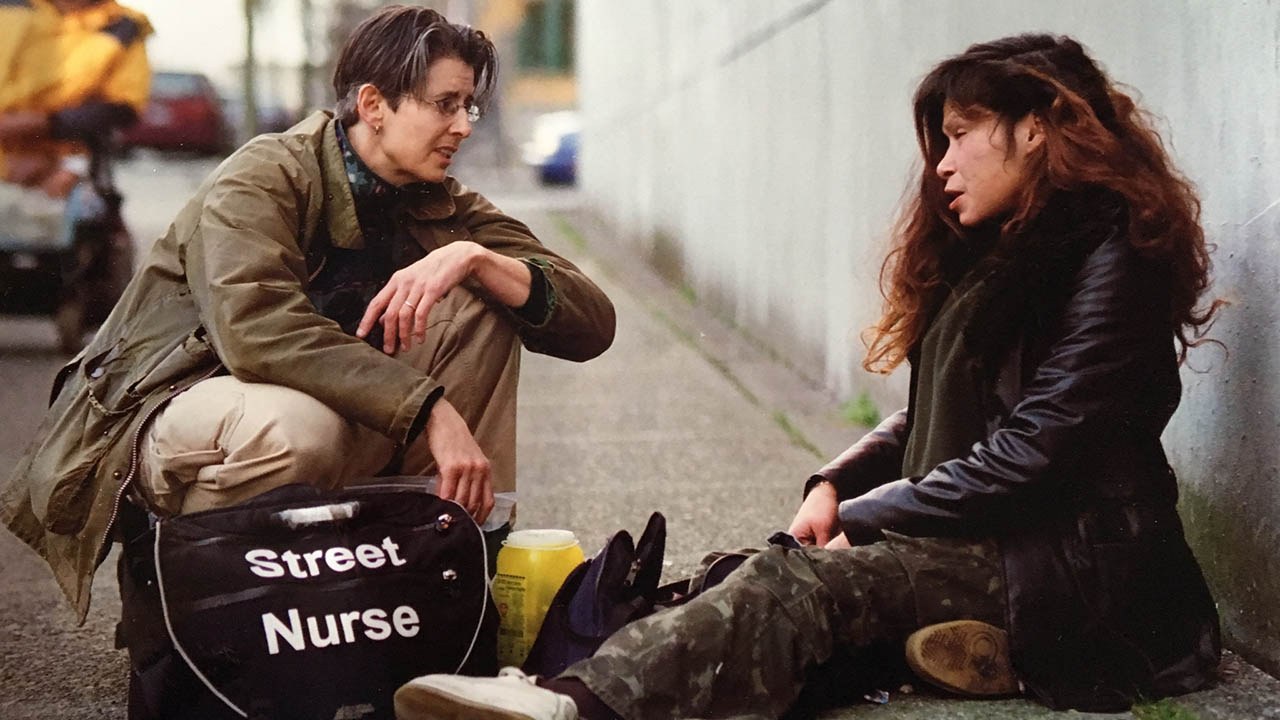
What healthcare leaders can learn from street nurses
Street nurses (also known as outreach nurses) are nurses who work with marginalized populations outside of a traditional healthcare setting. This may include providing care to homeless communities, those working in the sex trade, or other groups who experience significant barriers to accessing healthcare services.
We were honoured to welcome Registered Nurse Caroline Brunt, who works as a street nurse in the Vancouver Downtown Eastside, as a guest on our Central Line: Leadership in Healthcare podcast. Caroline spoke with us about the importance of street nursing, and her wisdom and experience offer some important lessons about the healthcare system and how we can all incorporate empathy, compassion, and patience into our practice as healthcare professionals.
Here were a few of our favourite takeaways:
Everyone is worth your time
As a street nurse, Caroline sees every day the incredible power of treating every human being like they’re worthy of your time and respect.
“We always have to remember that people are people first before they’re anything else,” says Caroline.
It can be easy to view our colleagues and co-workers only through the lens of what they do for us. But it’s important to remind ourselves that everyone we interact with on a daily basis is a multifaceted human being with their own unique set of talents and challenges.
Street nurses, like Caroline, support people every day who are often brushed aside, looked down upon, or told—directly or indirectly—that they’re not worthy of time, resources or care.
“I would be told many times…‘Caroline, thank you for treating us like a person…[like] we don’t have issues, [like] we’re not a problem,’” Caroline recounts.
Next time you’re pressed for time and find yourself rushing through interactions with your team or patients/clients, remember the impact you can have on someone simply by pausing, listening, and letting them know how worthy they are of your time and attention.
Moving away from a problem-oriented approach can make all the difference

Still from Bevel Up: Drugs, Users and Outreach Nursing, a documentary by Nettie Wild, produced by the National Film Board.
Healthcare in Canada is often very problem-oriented. This means that health issues are seen as problems to be solved, rather than as part of a holistic health journey.
According to Caroline, getting to know someone as a person before getting to know their health concerns builds trust and can help healthcare professionals better understand their team and patients/clients wellbeing holistically.
“[It’s important to approach health] through the lens of health promotion,” Caroline says. “[Which is more about] acknowledging you for what you’re doing well and if any issues come up, let’s chat about that.”
Using a health promotion approach takes the shame out of healthcare, and celebrates patients’ efforts rather than focusing on their shortcomings.
You can use this approach with patients and clients, but also with your team members and coworkers—rather than focus conversations on a problem that needs to be solved, reframe discussions to celebrate what’s going well and how you can make it even better.
Healthcare should be about meeting people where they’re at
As part of our problem-oriented approach to healthcare, we often view our roles as healthcare professionals and leaders as guiding people (patients, team members, stakeholders) where we want them to go. But, as Caroline emphasizes, it’s far more productive to meet people where they’re at without judgement.
In street nursing, this often means taking a harm reduction approach to helping people who are working in the sex trade and/or using drugs. It also means building trust with those who may not have had great experiences with healthcare professionals.
“As we know, unfortunately the healthcare system has been quite stigmatizing against [certain] populations,” Caroline explains.
Undoing that stigma requires a re-examination of how we, as healthcare professionals, approach our work. Being an empathetic and compassionate leader is about seeing a person for who they are, all the great things they’ve done to survive, grow, and thrive, and helping them get to where they want to go next, even if their desires and goals are different from yours.
Learn more about Caroline Brunt and street nursing
If you’re interested in learning more about the critical work Caroline and other street nurses are doing, you can listen to our full podcast episode on Podbean, Spotify, or Apple Podcasts.
You can also watch Bevel Up: Drugs, Users and Outreach Nursing, an award-winning documentary spearheaded by Caroline to help educate healthcare professionals, students, and the public about the health issues and barriers facing the marginalized populations on Vancouver's Downtown Eastside.
